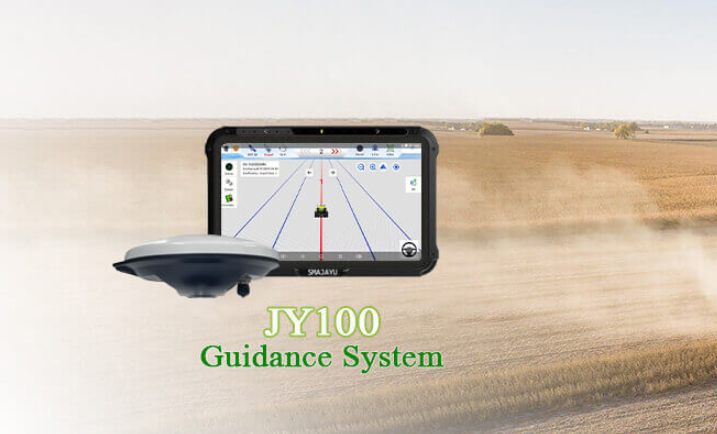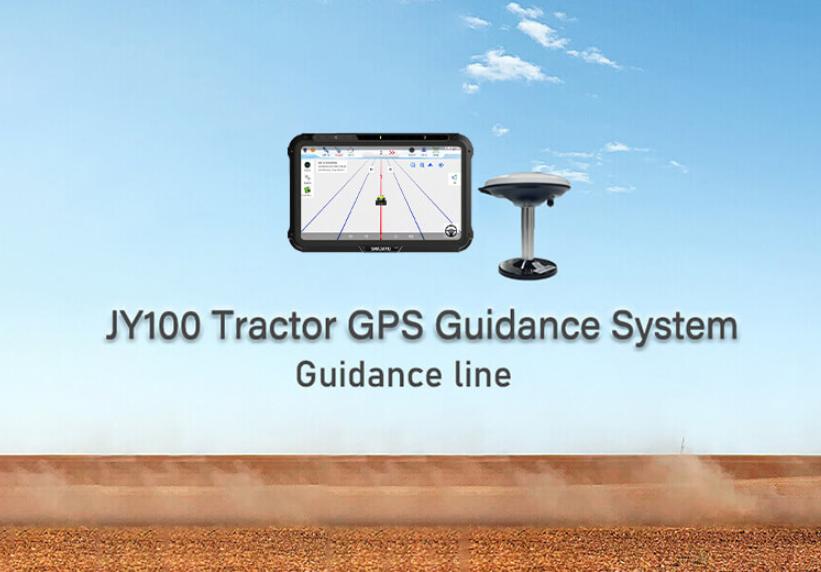In the modern era of agriculture, precision is paramount. Gone are the days of relying solely on intuition and experience to cultivate crops efficiently. Instead, farmers now turn to cutting-edge technology to optimize their operations and maximize yields. At the forefront of this technological revolution are Farm Tractor GPS Systems. These systems seamlessly integrate GPS technology into farm tractors, revolutionizing the way farmers manage their fields.
Introduction to Farm Tractor GPS Systems
1. The Importance of Precision Agriculture
Precision agriculture has emerged as a game-changer in the farming industry. By leveraging advanced technologies like GPS, farmers can precisely monitor, manage, and optimize their field operations. This approach allows for the customization of inputs such as water, fertilizers, and pesticides, leading to improved efficiency, increased yields, and reduced environmental impact.
2. Integration of GPS Technology
Modern farm tractors are equipped with sophisticated GPS systems that provide real-time positioning and guidance capabilities. These systems rely on a network of satellites to accurately determine the tractor's location within the field. By integrating GPS technology into tractor operations, farmers can achieve precise control over various tasks, from planting and spraying to harvesting and tillage.
3. Benefits of GPS Systems in Agriculture
The adoption of GPS systems in agriculture offers a myriad of benefits. Firstly, it enhances operational efficiency by enabling farmers to work with greater precision and accuracy. This not only saves time and labor but also reduces input costs by minimizing the wastage of resources such as seeds, fertilizers, and fuel. Additionally, GPS-guided operations promote environmental sustainability by minimizing chemical runoff and soil erosion.
Key Features to Consider When Choosing a Farm Tractor GPS System
When selecting a farm tractor GPS system, several key features should be taken into consideration to ensure optimal performance and compatibility with existing equipment.
1. Accuracy
One of the most critical factors to consider is the accuracy of the GPS system. Higher accuracy levels ensure precise positioning, leading to more accurate field operations and reduced overlaps or skips.
2. Compatibility
The GPS system should be compatible with other farm equipment and machinery, such as planters, sprayers, and harvesters. Seamless integration between different components allows for streamlined workflows and improved overall efficiency.
3. Ease of Use
User-friendly interfaces and intuitive controls are essential for farmers, especially those who may not be tech-savvy. A straightforward setup and operation process can significantly enhance productivity and reduce downtime.
4. Data Management Capabilities
Advanced GPS systems offer robust data management capabilities, allowing farmers to collect, analyze, and utilize data for decision-making purposes. Features such as data logging, mapping, and variable rate application enable precision farming practices and optimization of inputs.
Comparison of Different GPS Systems
When evaluating farm tractor GPS systems, farmers should compare various options available on the market to find the best fit for their specific needs and budget constraints.
1. SMAJAYU GPS System
SMAJAYU is a leading manufacturer of farm tractor GPS systems known for its reliability, accuracy, and advanced features. Their systems offer high precision positioning, seamless compatibility with a wide range of equipment, and user-friendly interfaces.

2. Competitor Comparison
In comparison to other GPS systems, SMAJAYU stands out for its affordability, scalability, and comprehensive support services. While some competitors may offer similar features, SMAJAYU distinguishes itself through its commitment to quality and customer satisfaction.
3. Budget Constraints and Scalability
Farmers must consider their budget constraints when investing in a GPS system. While SMAJAYU offers competitive pricing, it's essential to weigh the upfront costs against the long-term benefits and potential return on investment. Additionally, scalability options should be considered to accommodate future expansion and technological advancements.
Enhancing Farm Operations with GPS Guidance Systems
GPS guidance systems have revolutionized various farm operations, optimizing efficiency, productivity, and profitability across the board.
1. Planting
GPS-guided planting enables farmers to precisely position seeds with minimal overlaps or gaps, resulting in uniform crop emergence and higher yields. Variable rate planting capabilities allow for customized seeding rates based on soil conditions and yield potential, maximizing efficiency and profitability.
2. Spraying
With GPS-guided spraying, farmers can apply pesticides and herbicides with pinpoint accuracy, minimizing chemical usage and reducing environmental impact. Automated section control features ensure precise coverage while minimizing overlaps, leading to cost savings and improved crop health.
3. Harvesting
GPS-guided harvesting streamlines the harvesting process, allowing for precise navigation through the field and optimized grain yield monitoring. Yield mapping capabilities provide valuable insights into field performance, helping farmers identify areas for improvement and implement targeted management practices.
4. Tillage
GPS-guided tillage operations ensure uniform soil preparation and seedbed optimization, leading to improved seed-to-soil contact and crop establishment. Precision tillage practices help conserve soil moisture, reduce erosion, and enhance overall soil health and productivity.
5. Real-Life Examples of GPS System Benefits
Numerous real-life examples showcase the tangible benefits of GPS guidance systems in agriculture. From increased yields and cost savings to environmental stewardship and sustainability, farmers worldwide are reaping the rewards of adopting precision farming practices enabled by GPS technology.
Precision Agriculture and Data Management with Farm Tractor GPS Systems
Precision agriculture has transformed modern farming practices, enabling farmers to optimize productivity while minimizing environmental impact. Central to this paradigm shift are Farm Tractor GPS Systems, which empower farmers with the tools to implement precision agriculture practices effectively.
1. Enabling Precision Agriculture Practices
Farm Tractor GPS Systems facilitate precision agriculture practices by providing farmers with accurate positioning and guidance capabilities. These systems allow for variable rate application, where inputs such as fertilizers, pesticides, and irrigation are applied at variable rates across the field based on real-time data. Site-specific crop management techniques, such as soil mapping and yield monitoring, are also made possible through GPS technology, enabling farmers to tailor their management strategies to specific areas within their fields.
2. Data Management for Maximizing Benefits
Effective data management is essential for maximizing the benefits of GPS technology in agriculture. Farm Tractor GPS Systems collect vast amounts of data on field conditions, crop performance, and equipment operations. This data can be analyzed to identify trends, make informed decisions, and optimize farm management practices. By harnessing the power of data analytics, farmers can improve efficiency, reduce input costs, and enhance overall productivity.

Addressing Challenges and Solutions in Implementing Farm Tractor GPS Systems
While Farm Tractor GPS Systems offer numerous benefits, implementing these systems can present challenges for farmers.
1. Common Challenges
Some common challenges faced by farmers when adopting GPS systems include the initial setup and calibration of equipment, technical issues such as signal interference or equipment malfunction, and the interpretation of data collected by the system.
2. Practical Solutions
To overcome these challenges, farmers can take advantage of training resources and technical support options provided by manufacturers such as SMAJAYU. Comprehensive training programs can equip farmers with the knowledge and skills needed to install, operate, and troubleshoot GPS systems effectively. Additionally, responsive technical support services can address any issues or concerns that may arise during the implementation process, ensuring a smooth transition to precision agriculture practices.
Future Trends and Innovations in Farm Tractor GPS Systems
The future of Farm Tractor GPS Systems is characterized by continuous innovation and technological advancements, shaping the future of agriculture in profound ways.
1. Emerging Technologies
Emerging technologies such as autonomous tractors, equipped with GPS-guided navigation systems, have the potential to revolutionize farm operations by reducing labor requirements and increasing operational efficiency. Machine learning algorithms are being integrated into GPS systems to analyze data in real time, providing farmers with actionable insights and predictive analytics for improved decision-making. Furthermore, the integration of IoT (Internet of Things) devices enables seamless connectivity between farm equipment and management systems, facilitating data exchange and automation of tasks.
2. Revolutionizing Farm Operations
These advancements in Farm Tractor GPS Systems are poised to revolutionize farm operations and contribute to sustainable agriculture practices. By leveraging autonomous technology and data-driven insights, farmers can optimize resource utilization, minimize waste, and enhance environmental stewardship. The future of agriculture is bright with the promise of Farm Tractor GPS Systems leading the way towards a more efficient, productive, and sustainable future.
Conclusion
Farm Tractor GPS Systems, such as those offered by SMAJAYU, have become indispensable tools for modern farmers seeking to maximize efficiency, productivity, and sustainability in their operations. By harnessing the power of GPS technology, farmers can navigate the complexities of modern agriculture with precision and confidence, ensuring a bountiful harvest for generations to come.


